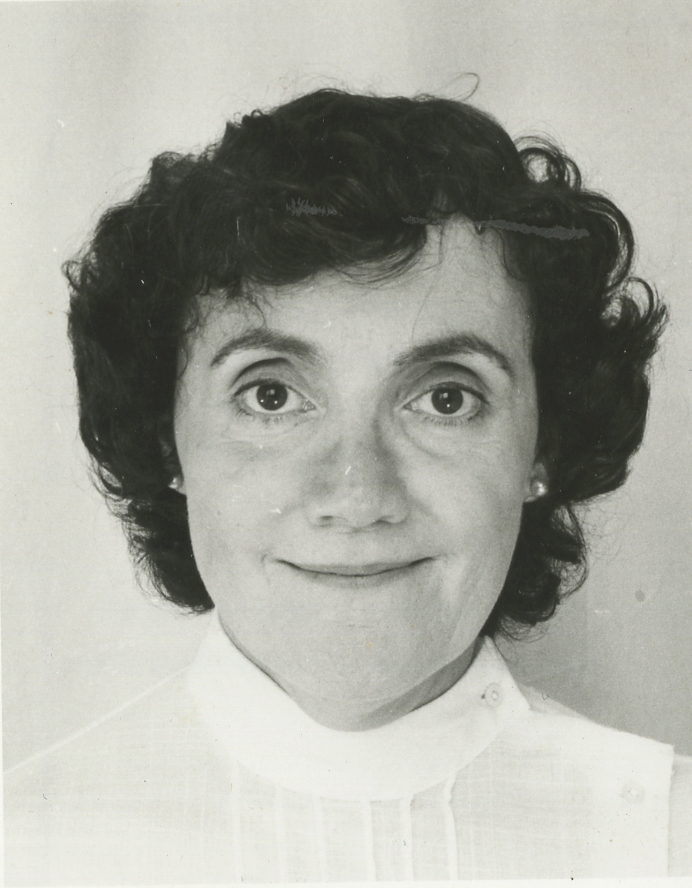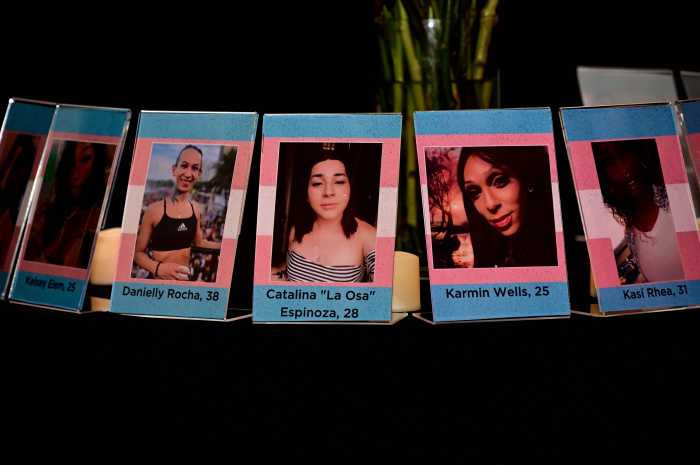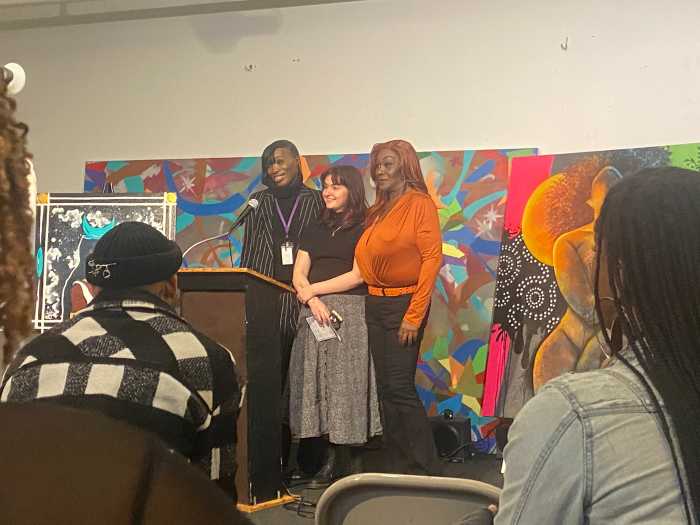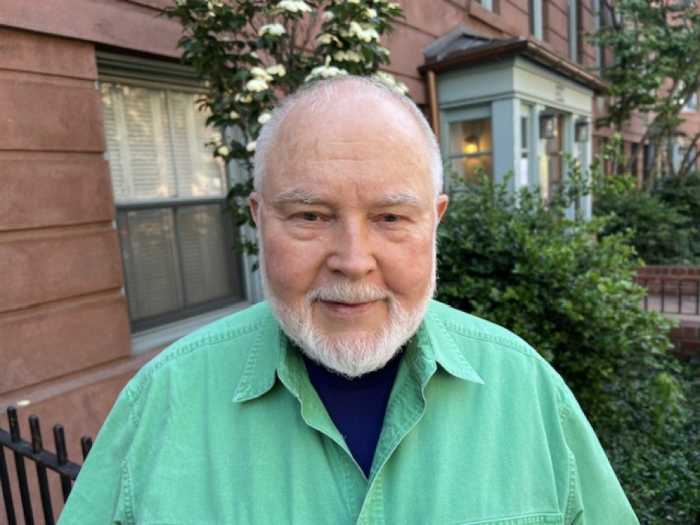Jeanne Hoff, MD, who in the 1970s became the first openly trans psychiatrist to treat trans patients and who was the subject of a groundbreaking 1978 national television documentary on her own gender confirmation surgery, died at her San Francisco home on October 26, 2023. She was 85 years old.
Dr. Hoff was practicing and already transitioning when in 1976 she took over the New York practice of Dr. Harry Benjamin (1885-1986), the noted German-American endocrinologist and sexologist who had worked with pioneering gay sexologist Dr. Magnus Hirschfeld in Germany, coined the term “transvestite” in 1910, and — even before emigrating to America in 1914 — saw patients he would later term transsexual. He was the US doctor for Christine Jorgensen, who had gender confirmation surgery in 1952 in Denmark and made international headlines.
In 1979, the Harry Benjamin International Gender Dysphoria Association was formed with Dr. Hoff as a member, later becoming the World Professional Association for Transgender Health.
Dr. Hoff first practiced out of Dr. Benjamin’s old offices at 1 E. 72nd St. before setting up one in her Chelsea townhouse at 219 W. 22nd St. It was there that Dr. Hoff, who had been a guest on the WNBC-TV public affairs show “Not for Women Only,” invited the show’s crew into her home for “Becoming Jeanne,” a documentary about her transition.
Feeling that she needed to be as open about her identity as she urged her LGBTQ patients to be, Dr. Hoff was interviewed before, during, and after her gender confirmation surgery. Up until then, few people of transgender experience other than Jorgensen and ophthalmologist and tennis star Dr. Renee Richards were known to the public — though popular entertainment included lots of cross-dressing males, from Milton Berle to Flip Wilson, who were not transgender themselves but did it for comic effect.
Dr. Hoff was a very serious person — though with a great sense of humor and warmth. I first met her in the late 1970s through the Catholic gay group Dignity/New York, where she was not only an active member but taught a peer counseling class that included her definition of sexuality as our “sex, gender, and eroticism” in any combination. She held that gender and eroticism were on densely populated spectrums, but defined sex as whether a person produced eggs or sperm.
Dr. Hoff took other psychiatrists to task when they would help a man transition to be a woman and then insist that as a woman, the patient had to form intimate relationships with men and not be “gay.” Dr Hoff knew that erotic attraction was independent of gender identity and that there are, of course, trans women who are lesbians.
Dr. Hoff, as an MD, was also rare among psychiatrists at the time in doing thorough physicals on her patients as part of initial treatment–not just diving in to their psyches. She also did very probing intakes that asked almost every imaginable question of her patients, including about their sexual orientations and desires. She would say that you get one chance on intake to ask all these questions dispassionately and neutrally, and failing to do so made it harder to bring up later in treatment. By including the questions among comprehensive others — whether or not the patient was raising them — she was signaling them that they could talk with her about anything.
On “Becoming Jeanne,” Dr. Frank Field and Lynn Redgrave asked many of the fundamental questions that average people would want to know about Dr. Hoff or any trans person at a time when there was almost no public discourse around transsexual people.
At the end of the program, Dr. Field asked her, “How do you want us to accept you? What can we do?”
Dr. Hoff’s answer was one with great resonance for today when transgender people and rights are under massive attack.
“Well, it may not be necessary for you to go to a lot of trouble to learn about accepting transsexuals if you have a general principle, and that is: mind your own business, I suppose. If you are meddling in the life and freedom of someone else you ought to do so very cautiously and make sure that you’re entitled to do so and that they’ll be better off for your having been there.”
She said, “So if you take the position that people are all right until they have proved that they’re not, you’re not likely to harm them and I’ll do my best to justify that confidence.”
NY Times TV critic John O’Connor, in reviewing the documentary, wrote that Dr. Hoff “is pleasantly articulate and remarkably objective.”
Speaking to a Dignity chapter on the Jersey Shore, Dr. Hoff said, “A transsexual is not a woman trapped in a man’s body or a man trapped in a woman’s body. I didn’t like having a man’s body. I felt a stranger in a man’s world… I not only have a woman’s body [now] but a good one and I glory in it.”
Rev. Bernárd Lynch, who remembers her from Dignity/NY, said, “Her fierce courage was unique at a time and in a Church institution that was and still can be so homophobic. Yet she found warmth, companionship, and support from many. Jeanne inspired us by being herself — sparing no price and counting no cost in her integrity.”
Prior to the documentary, Dr. Hoff engaged in a TV debate with the notoriously anti-gay psychiatrist Dr. Charles Socarides, who had tried to reverse the historic 1973 decision of the American Psychiatric Association that took homosexuality out of its index of mental disorders. Socarides, who worked to keep gay people out of certain professions and made false claims for the now often illegal practice of “conversion therapy,” clung to the sickness model of homosexuality until he died in 2005.
On his death, Dr. Hoff told Gay City News, “Socarides was a captive of the psychoanalytic school, now thoroughly discredited, and tried to use elements of that theory to explain what was largely hidden from view at the time, causing a great deal of suffering to parents and gays alike for the implication of abnormality. Modern psychiatry — more objective and less blaming — sees homosexuality as one band on a broad spectrum of normal variants in the ways human sexuality develops and not a rare and destructive disorder. He never seems to have made the adjustment to data, objective study, or the demise of his psychoanalytic faith-based system.”
While 100% discreet about the identity of her clients, one of them — punk rocker Jayne County — cited Dr. Hoff as her doctor in her 1995 autobiography.
Dr. Hoff was born in St. Louis on Oct. 16, 1938. She served in the Coast Guard and earned an MD at Columbia University, College of Physicians And Surgeons (1963), followed by a doctorate in solid state chemistry at University College, London, and then training and a residency as a psychiatrist at the Washington University School of Medicine in St. Louis.
After closing her New York City private practice in the 1980s, Dr. Hoff worked in a psych ward in Brooklyn and a psychiatric hospital in Kingston, NY, hired by Carol Lucas, RN, who became a lifelong friend and remembers her as “kind and humble. She was a whiz but did her work quietly and helped so many.”
Dr. Hoff later settled in San Francisco and worked in the California prison system, where she was assaulted during a counseling session by a death-row inmate, an incident that led to her retirement.
Julian Gill-Peterson, author of “Histories of the Transgender Child,” wrote, “Hoff cared deeply about the well-being of her clients to a degree that is viscerally embedded in the archive she gifted to the Kinsey Institute. Her work demonstrates a level of empathy entirely absent from transsexual medicine since its advent — not to mention its predecessors in the early twentieth century — an ethic of care that, although greatly constrained by the material circumstances and history of psychiatry and endocrinology, was also entangled with her situated perspective as a trans woman. It is important to underline that Hoff represents yet another trans person who took an active and complicated role in medicine, rather than being its object.”
On a personal note: When Jeanne was in hospital in Queens recovering from her confirmation surgery in 1978, I visited on Christmas Day wearing a Santa Claus suit. Through her sedated haze, she recognized me, but I was summarily thrown out of this special ward by the head nurse who angrily told Santa to “Get out!” I’d brought her a plush toy, a tradition I continued every Christmas no matter where she moved. She was an unforgettable pioneer.



































